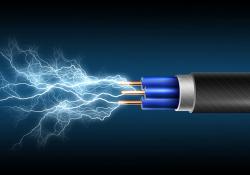The EU’s goal is for Europe to be the most connected continent by 2030.
What is connectivity?
Connectivity encompasses digital networks, from mobile and fixed structures to the internet, including cables and satellites. However, beyond its technological facets, connectivity embodies a profound human dimension. It allows us to reach out to others no matter where they are in the world. It puts countless possibilities in the palm of our hands: we can read the latest news whenever and wherever we find convenient, follow online classes, learn skills, and seek advice from professors and professionals no matter how far away they are. We can also browse online markets to find the most convenient products and services or offer our own products to customers around the world.
From standards to networks: Building a connected EU
EU policies on connectivity aim at harmonising connectivity regulations to foster cross-EU services and expanding networks. These objectives derive from the Digital Decade connectivity goals: European households should have access to high-speed internet coverage by 2025 and gigabit connectivity by 2030.
The EU strives to implement standardised rules for connectivity services, fostering a regulatory environment that incentivises investment in telecommunication markets and ensures consistent benefits across EU territories. All these will ultimately result in increased consumer choice, service standards. and affordability. Such objectives have been pursued through various means, including:
- Modernising and consolidating the EU telecommunications regulations into a unified framework by introducing the European electronic communications code
- Supporting harmonised technical conditions for EU-wide interoperability of wireless through the radio spectrum policy programme
- Leading discussions on global Internet and telecommunication development and governance
In February 2024, the Commission published the White Paper “How to master Europe’s digital infrastructure needs?”. The White Paper presents the challenges and opportunities Europe currently faces in the rollout of future connectivity networks, suggesting potential scenarios for action to strengthen the EU’s capacities and economic security in all critical parts of the computing continuum. The Commission launched a call for evidence in June 2025, which sought input from Member States, civil society, industry and academics on the Digital Networks Act (DNA) initiative. Building upon the EU Electronic Communications Code (EECC) adopted in 2018, the DNA proposal has been adopted on 21 January 2026 to address the challenges faced by the EU to ensure availability and capabilities of critical infrastructure and services.
The Gigabit Infrastructure Act addresses the need for faster and more reliable connectivity across the EU. It seeks to expedite the rollout of advanced Gigabit networks by streamlining regulatory processes and reducing administrative burdens for network deployment. The act focuses on simplifying permitting procedures, enhancing coordination between network operators, and ensuring that new buildings are equipped with fiber connectivity.
The EU also supports the expansion and the implementation of 5G networks by providing funding, developing technical guidance, and fostering collaboration among experts. With these concerted efforts, the EU strives to empower public administrations and businesses, facilitating their endeavors to advance connectivity and embrace the transformative potential of 5G technology.
The Smart Networks and Services Joint Undertaking (SNS JU) backs 6G research and development. Beginning 2024, the SNS JU initiated 27 projects in various 6G technology fields. These encompass system architecture, wireless communication, infrastructure, reliable services, smart security, and societal impacts. Moreover, the EU promotes collaboration with the US on pivotal 6G technologies, notably those integrating Artificial Intelligence (AI), to enhance network capabilities.
Other EU past actions include the end of roaming charges, enabling the use of mobile subscriptions across the EU no extra cost. The WiFi4EU initiative also funded the installation of free Wi-Fi hotspots in local communities.
Latest News
Related Content
Dig deeper
-

The Digital Networks Act - DNA - will modernise the legal framework for connectivity to boost...
-

The European Commission is working to prepare Europe for 6G, ensuring we are ready for the next...
-

5G is the critical new generation network technology that will enable innovation and support the...
-

The European Commission is supporting EU businesses, project managers and authorities in increasing...
-

EU rules enshrine the principle of open Internet access: internet traffic shall be treated without...
-

The EU Electronic Communications Code (EECC) codified the rules governing the roll-out and operation...
-

The EU, together with the member states, manages radio spectrum creating the conditions for the...
-

Need help? 112 is your life-saving number! 112 is the European emergency phone number, available...
-

As you travel across the EU, you can use your phone to call, text and use data just like you do at...
-

The WiFi4EU initiative promotes free access to Wi-Fi connectivity for citizens in public spaces...
-

Europeans pay lower and limited charges for calling other EU countries.
-

The connectivity toolbox offers guidance for the deployment of fibre and 5G networks. These networks...
-

ICT standards and specifications ensure that products can connect and interoperate with each other...
WIFI4EU

The WiFi4EU initiative promotes free access to Wi-Fi connectivity for citizens in public spaces...




